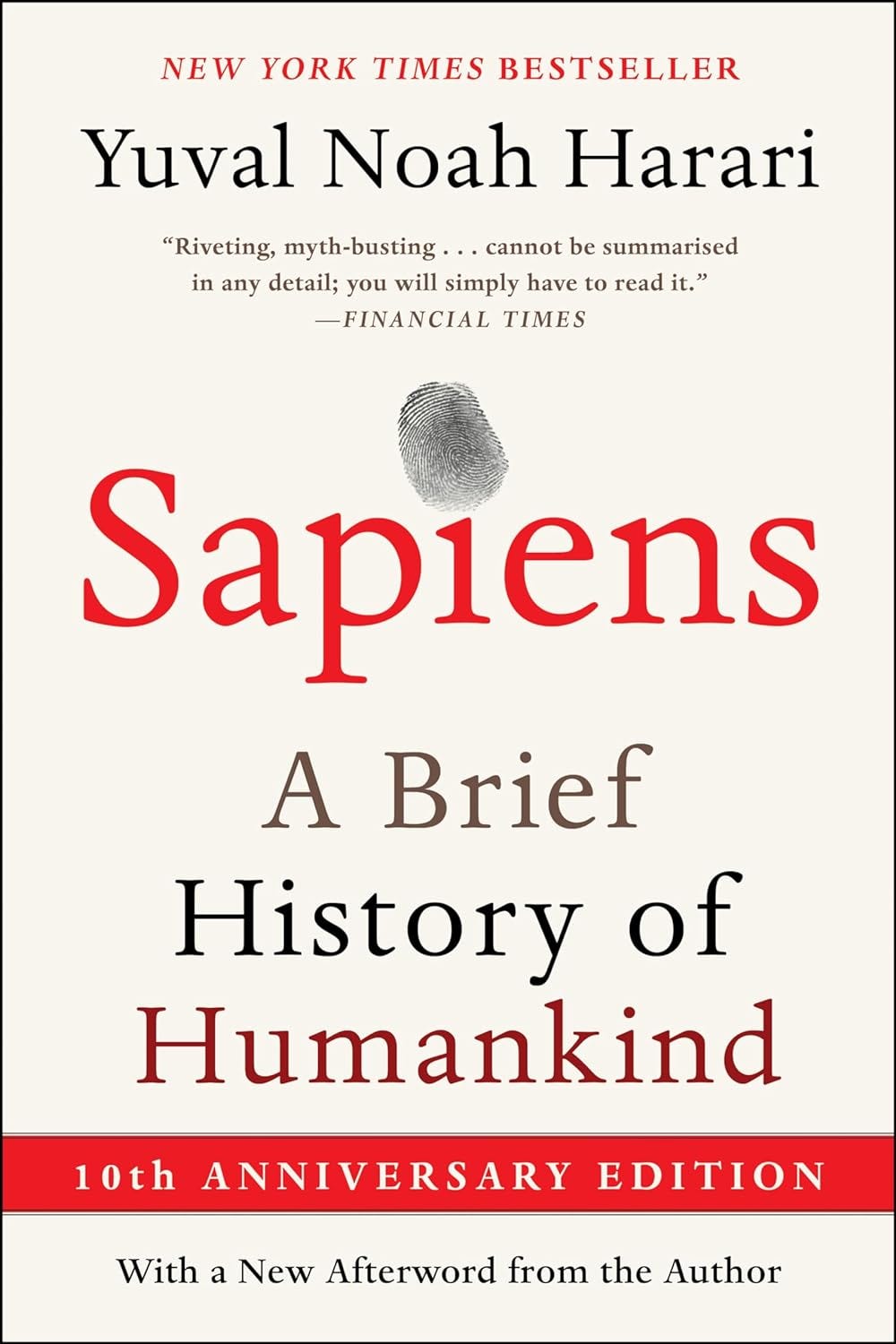Sapiens: A Brief History of Humankind
Unlock the Secrets of Human History to Help You Navigate the Future
Good evening, friends! Welcome to the ReadVault Club. I'm Tom Niklas, a seasoned writer and book reviewer. Please subscribe to me and join us in reading 52 books a year together.
I specialize in providing book reviews on personal growth, leadership, family and parenting, mental health, humanities, and history. I aim to assist busy citizens enjoying the benefits of reading books but struggling to find the time.
To help more people to read books easily, don't forget to like, share, and comment below. Your actions are helping more people.
Introduction
Today, we're diving into a book that’s been on my reading list for a while, and let me tell you, it did not disappoint. It's called "Sapiens: A Brief History of Humankind".
Now, I know what you're thinking: "History? That sounds dry and boring!" But trust me, this book is anything but. The author is like the coolest history professor you never had. He's got this incredible way of taking these big, complex ideas about human history and making them totally engaging and mind-blowing. It’s like watching an awesome documentary but for your mind.
So, why did I choose this book? Well, I think it’s relevant to our lives today, even though it’s about the whole sweep of human history. I mean, think about it: we’re living in a crazy time, right? Things are changing faster than ever before. Technology is evolving at warp speed. The world feels more interconnected, but also more uncertain. And sometimes, it feels like we've lost sight of what matters.
This book helps us understand how we got here. It takes us back to the very beginning of our species, showing us how Homo sapiens went from being these insignificant apes in a corner of Africa to becoming the dominant force on the planet. It explains how we did it, and used our unique abilities, like language and the power of imagination, to cooperate in large numbers, build empires, and even reshape the entire ecosystem.
I love this book because it's not just a history lesson. It’s a wake-up call. It forces us to question our assumptions about ourselves, our societies, and our place in the universe. It helps us see that many of the things we take for granted – like nations, religions, money, and even our sense of self – are just stories that we've collectively invented and chosen to believe in. These stories are powerful, but they're not set in stone.
That’s a pretty big idea to wrap your head around, right? It was for me. But once you start seeing the world through this lens, it changes everything. It makes you realize that we have a lot more agency than we think. We can choose which stories to believe in, and we can even create new stories that will shape the future.
So, that’s what I hope you’ll get out of this book review – a new perspective on our place in the world and a sense of empowerment to create the future we want.
The Cognitive Revolution: The Dawn of Imagination
Alright, let's jump into the first big idea from "Sapiens," which is the Cognitive Revolution. This is the moment when our species, Homo sapiens, developed the ability to think and communicate in a way that no other animal ever had before. It's like our brains got a major software upgrade, and it completely changed the game.
Now, the book talks about how, for millions of years, humans were just another animal. We were pretty insignificant. We were hanging out in Africa, gathering plants, hunting small animals, and trying not to get eaten by lions and not exactly ruling the world, right?
But then, something incredible happened. Around 70,000 years ago, Homo sapiens started doing some very special things. We migrated out of Africa, and we began to spread across the globe. We drove other human species, like the Neanderthals, to extinction. We invented boats, tools, art, and even jewelry. And we started to form larger and more complex societies.
So, what changed? The author argues that it was all about our new and improved ability to think and communicate. And the secret weapon? Our imaginations.
That's right, our imaginations. This is what sets us apart from other animals. We developed the ability to believe in things that don't physically exist – things like gods, nations, and corporations.
Think about it. You can't see a nation, can you? You can see its flag, its borders on a map, maybe its government buildings. But the nation itself? It's just an idea, a story that we all agree to believe in. And yet, that idea has the power to unite millions of strangers, inspire them to fight and die for it and shape the course of history.
It’s the same with money. You can hold a dollar bill in your hand, but the value of that dollar? That only exists in our collective imagination. We all agree that it's worth something and that we can exchange it for goods and services. If we suddenly stopped believing in the dollar, it would become worthless overnight.
This ability to believe in shared myths is what the author calls "the imagined order." It’s what allows us to cooperate in large numbers, build complex societies, and achieve things that would be impossible for any individual or small group to do on their own.
Keep reading with a 7-day free trial
Subscribe to ReadVault to keep reading this post and get 7 days of free access to the full post archives.



